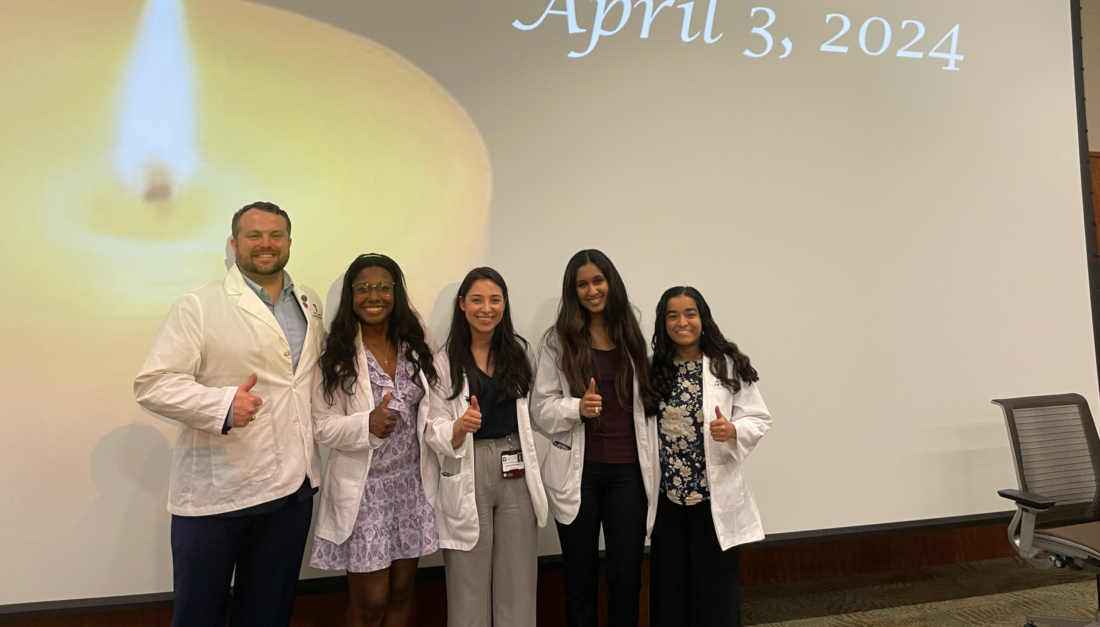Searching for an end to intimate partner violence

In the spring of 2017, Sherilyn Gordon-Burroughs, MD, was the victim of an apparent murder-suicide by her husband in their home in Richmond, Texas. The prominent transplant surgeon was a professor at Texas A&M College of Medicine and the director of the Houston Methodist Hospital’s general surgery training program for residents.
No motive was found for the murder, and family and friends of Gordon-Burroughs said they were not aware of any violence in her home.
Dianne Kraft, PhD, assistant dean for diversity at the College of Medicine, has long had an interest in intimate partner violence and women’s psychology. She’s been involved in numerous academic and professional initiatives focused on the topic. Kraft was also developing a collegial and personal friendship with Gordon-Burroughs before her sudden death last year.
“When Sherilyn was killed, we were just getting to know each other,” Kraft said. “It was shocking and reverberated across the Houston and Texas A&M medical communities.”
Kraft wondered how many female physicians were killed or survived murder attempts by their partners. In a quick literature search, she found 25 murders in the last decade—a figure that prompted her to make this a priority topic.
Physician wellness, mental wellness, gender issues and professional interpersonal violence—all of which play a role in intimate partner violence among female physicians—have been topics of interest to Kraft throughout her career. She wants to help make the world safer for all women but believes that medical professionals have distinctive circumstances.
“It’s a constant factor that we come across in the medical profession: Physicians are so well prepared and trained to talk to patients about their issues, but are completely and totally unprepared to talk to each other about their own situations,” Kraft said. “When it comes to intimate partner violence, professional women’s experiences are often unique when compared the larger women’s population.”
Although Kraft’s initial focus was on murder and attempted murder, the various other incidents related to intimate partner violence remain far more numerous and underreported. “There’s this idea that professional women aren’t brutalized,” she said. “This is completely untrue, and the more that we investigate, the more situations we’re finding. But many still remain unreported.”
Kraft led a focused roundtable discussion at the recent American Association of Medical Colleges’ annual meeting and an informal discussion at the Annual Medical Education Conference (AMEC) for the Student National Medical Association.
“Students were running down the hall to talk to me after the discussion at the AMEC,” Kraft said. “When we open the doors to this conversation, it opens a flood of stories and information and experiences that we never would have known about if the conversation hadn’t been started.”
Kraft’s next step is to formalize her examination of physician interpersonal violence. She is working on an institutional review board (IRB) proposal that will allow her to fine-tune her research.
“Our goal is to raise awareness of intimate partner violence and help people find solutions to their situations,” Kraft said. “I want to create workshops across the professional organizations and conferences to shed light on this, to help people see that they can come out of it and thrive.”
Kraft says that implementing this work at a medical school offers the profession the ability to equip physicians with the tools they need to live long and prosperous lives, both professionally and personally.
“The more we learn and understand the uniqueness of intimate partner violence among professional women, the better we can equip our students for wellness throughout their lives,” Kraft said. “There is so much more we can be doing, and this research will help us be as effective as we possibly can be.”
Media contact: media@tamu.edu


